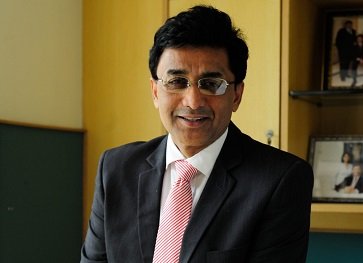“We are being cautiously optimistic"
September 15, 2014 | Monday | Interviews | By Rahul Koul Koul
“We are being cautiously optimistic"
Dr Ajoy Kumar, former Member of Parliament and CEO, Max Neeman International, New Delhi. He has recently joined Congress party as its spokesperson.
Q: Why is clinical research industry in the firing line of activists and certain sections of media? Are allegations of volunteers being treated as guinea pigs true?
Dr Ajoy Kumar: Our contribution to global trials is merely around one percent. So this whole guniea pig argument by activists is ridiculous and that if we would not be part of the global effort to develop drugs, it amounts to locking ourselves up in the 21st century. We have to realize that India is not the center of the world in development. Trials are the tail end of the developmental process, which is part of basic science. Emotional responses to an issue that is scientific in nature is misleading.
If we want to employ our young people in research, we cannot scare them with fear psychosis. All the basic level research happens at the university level. When there is no testing through clinical research, we cannot initiate an ecosystem in which students from the best institutes present new ideas and then, thorough basic research is done, followed by product outcomes and manufacturing. Cutting edge research will be missing, leading to no drug innovation and automatically negates any generation of employment opportunities. Some people were emotional and that puts pressure on the government. Activists must respect the fact that not every doctor or scientist works for companies. There are people who are dedicated and have shun money for science.
Q: How will shifting of trial locations out of India due to the prevailing scenario impact the Indian industry?
Shifting of trial sites out of India is going to harm the patients, science, and human resources equally. In medical science, the sharing of knowledge on cutting edge technologies and new research data is important. When we do not do that, we lag behind in innovation. Stopping participation in global trials, will deprive Indian doctors of new learnings and knowledge. As a result of the current situation, countries such as Korea, Malaysia, Bangladesh etc., are on the hot list of the companies who are looking for alternatives to do trials. Certainly, an harmonious regulatory environment is important for them to have the confidence to go ahead with trials. We too have looked outside India but still believe that it offers great benefits.
Q: What is the answer to the drug controller general of India's (DCGI)'s lack of manpower argument?
Let the companies self-certify themselves and that takes the load off the DCGI's head. If somebody is filing wrong information, penalize them severely. It happens across the world and should be tried here too. It will save time, resources and also do away with the need to curb the number of trials per investigator or limit the scope of trials.
Q: Has there been clear communication between companies and the regulator or health ministry officials?
Whenever we found issues, we have been able to meet the present DCGI. There are no hiccups in communicating with government agencies. In the past, there were exceptional people in the health ministry like Mr Keshav Desiraju, and then Dr Sanjay Jaiswal, parliamentary committee co-chair, who had, what I would term an exceptionally upright, sensible, unbiased, nationalistic, and balanced approach. People have great hope from the current health minister and his team too.
Q: How do you look at the Indian scenario from a foreign investor's point of view?
Unpredictability is what the foreign companies get frustrated with. In modern business, being predictable and friendly is important. The nation cannot afford to get a tag of being unprofessional and not respecting timelines. We have to respect their needs too.









